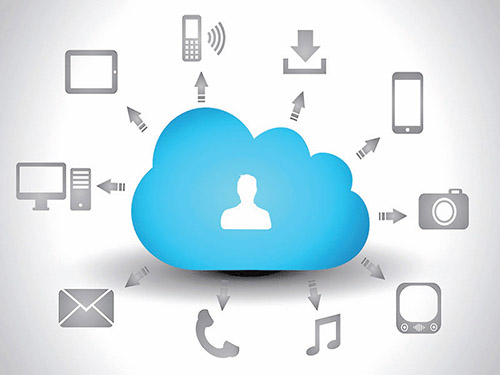
When I was an engineer at Verizon 14 years ago, I broke into the elite group. (Don’t think too much of that. How I got to Verizon and hired is a column in itself.)
I had the honor of building a large network diagram. My manager gave me a template, and all it had was a bog picture of a blue cloud. Being “totally green,” I figured he was a religious person and all the IT came from God (True story). I came home that night in a panic as to what the cloud meant.
Today, we’ve come a long way. Grasping the concept of cloud computing is quite easy. Most of us are using Gmail for email. Do anyone of us think about where these emails are stored physically? Does anyone care? Probably not.
My layman’s explanation is to think of a server somewhere that is storing your files that somehow you access via the internet. Most people don’t need much more than that.
When tech folks say “cloud access” or “stored in the cloud,” it’s a way to describe a server somewhere that some company owns. For example, Google Drive. When you store or save files on Google Drive, that is a server in the Google cloud.
If I ended my column right here that would maybe suffice, but this summer my company converted all of our clients to Ubiquiti Cloud Key access switches. (Brief description: A switch connects computers all around one’s office to a central device via a LAN [local area network] router and allows these computers to get on the internet. It is protected by a firewall, which protects the entire network and every device connected to it from attacks.)
For a nominal amount our engineering team connected the switches, which gives “cloud access” to the whole network, routers and firewalls. Until the cloud key was installed, our engineers would have to remote-in via a connected PC/server to see these devices and service them. Now via the Ubiquiti Cloud Key portal our engineers can view, make changes and update via the app/web.
With the Cloud Key these devices became ‘cloud ready.’
(I will try to break down as best I can to make this understandable. My colleagues usually email me after with way too much information that I didn’t provide to my readers.)
Chromebooks only work with wifi and internet. Chromebooks would be considered ‘cloud-only’ devices, though one can certainly enable offline mode for a plane ride or if you don’t have WiFi.
Information and data is stored on physical or virtual servers, which are maintained and controlled by a cloud computing provider, such as Amazon and their AWS product. As a personal or business cloud computing user, you access your stored information on the ‘cloud,’ via an Internet connection.
You may wonder if information stored in the cloud is safe and secure. My opinion is that most of our emails; banking and other important files are stored already in the cloud. Most ISPs or companies such AWS and Google have hundreds of engineers working and watching the cloud to keep it protected. These engineers are managing your cloud data 24/7. I feel this data is way more protected than any local data you may be storing on a local hard drive or external hard drive.
Summary if your thought process is “my data is safe as my data is in the cloud,” you are wrong. Cloud storage is safer than local storage and extremely reliable with today’s technology.
By Shneur Garb
Shneur Garb is the owner of the The Garb I.T. consulting group LLC. Questions or comments can be submitted to [email protected].








